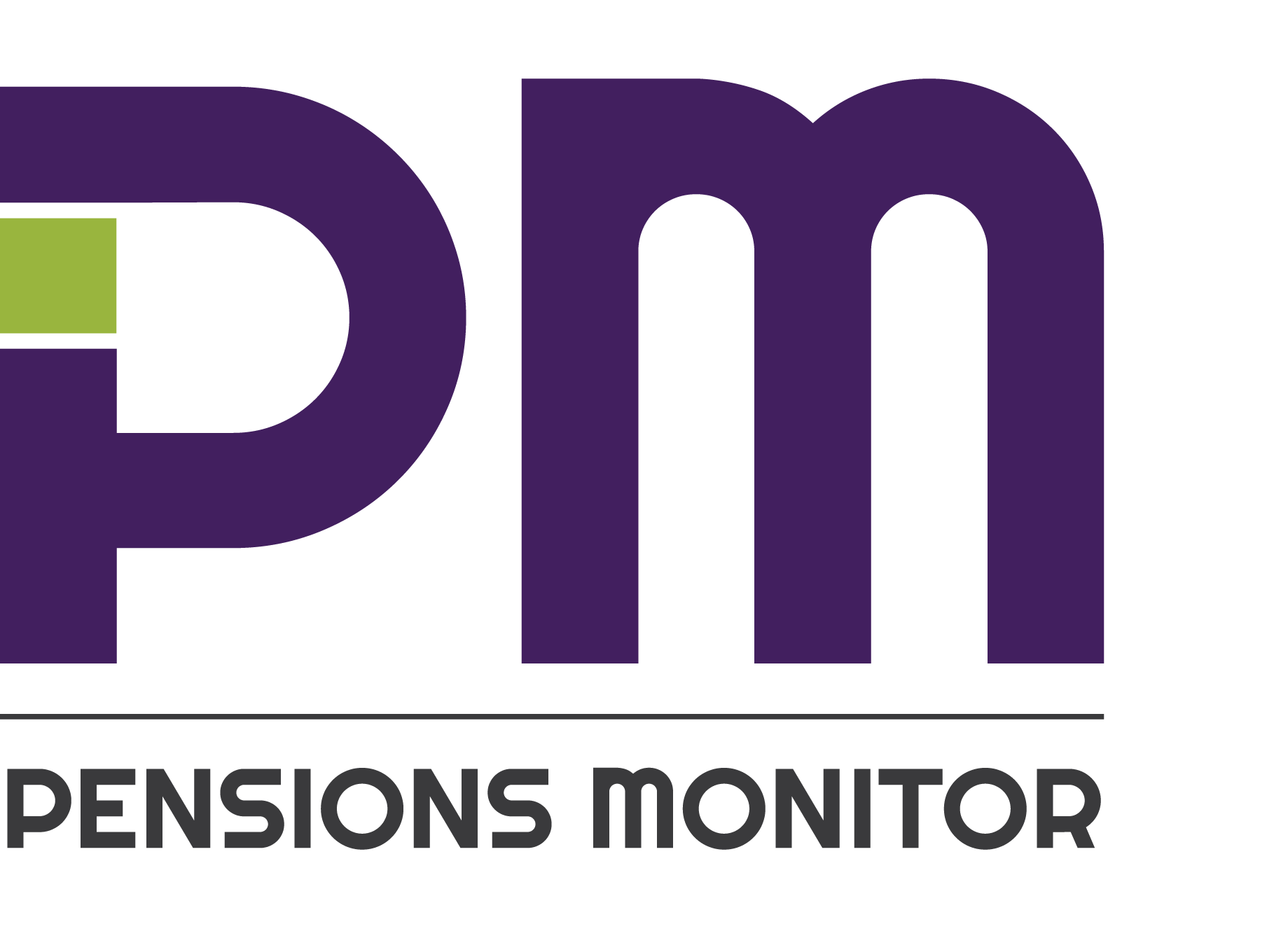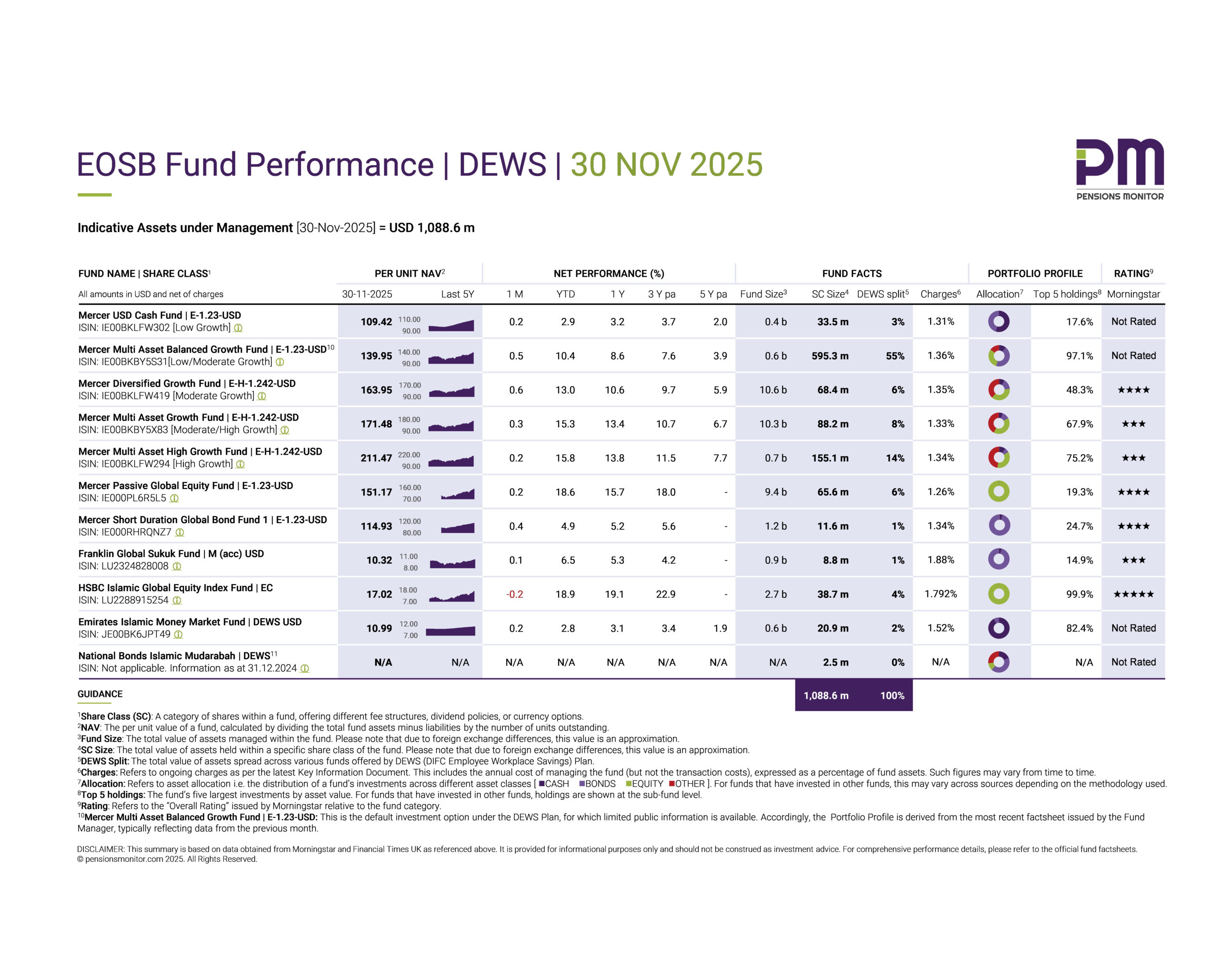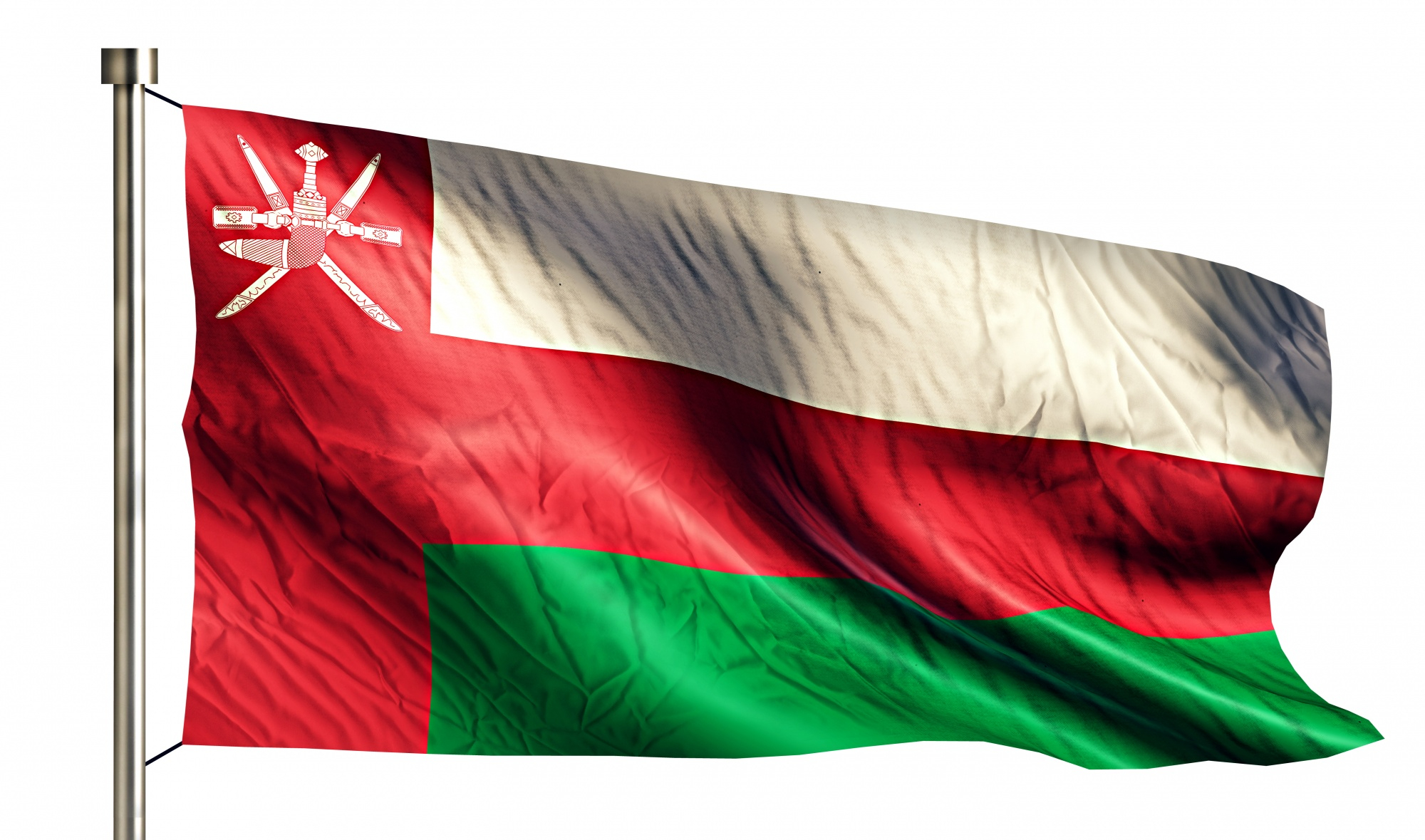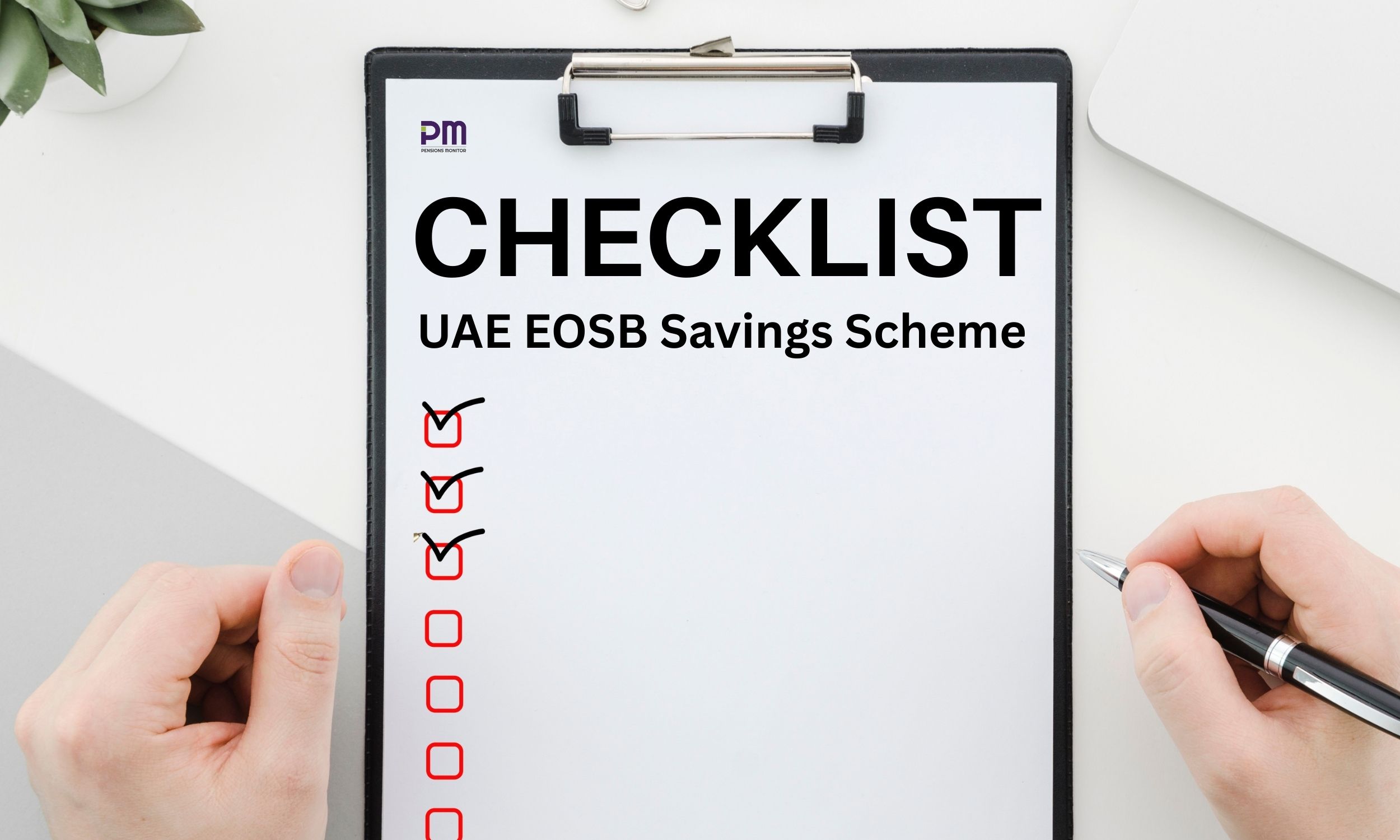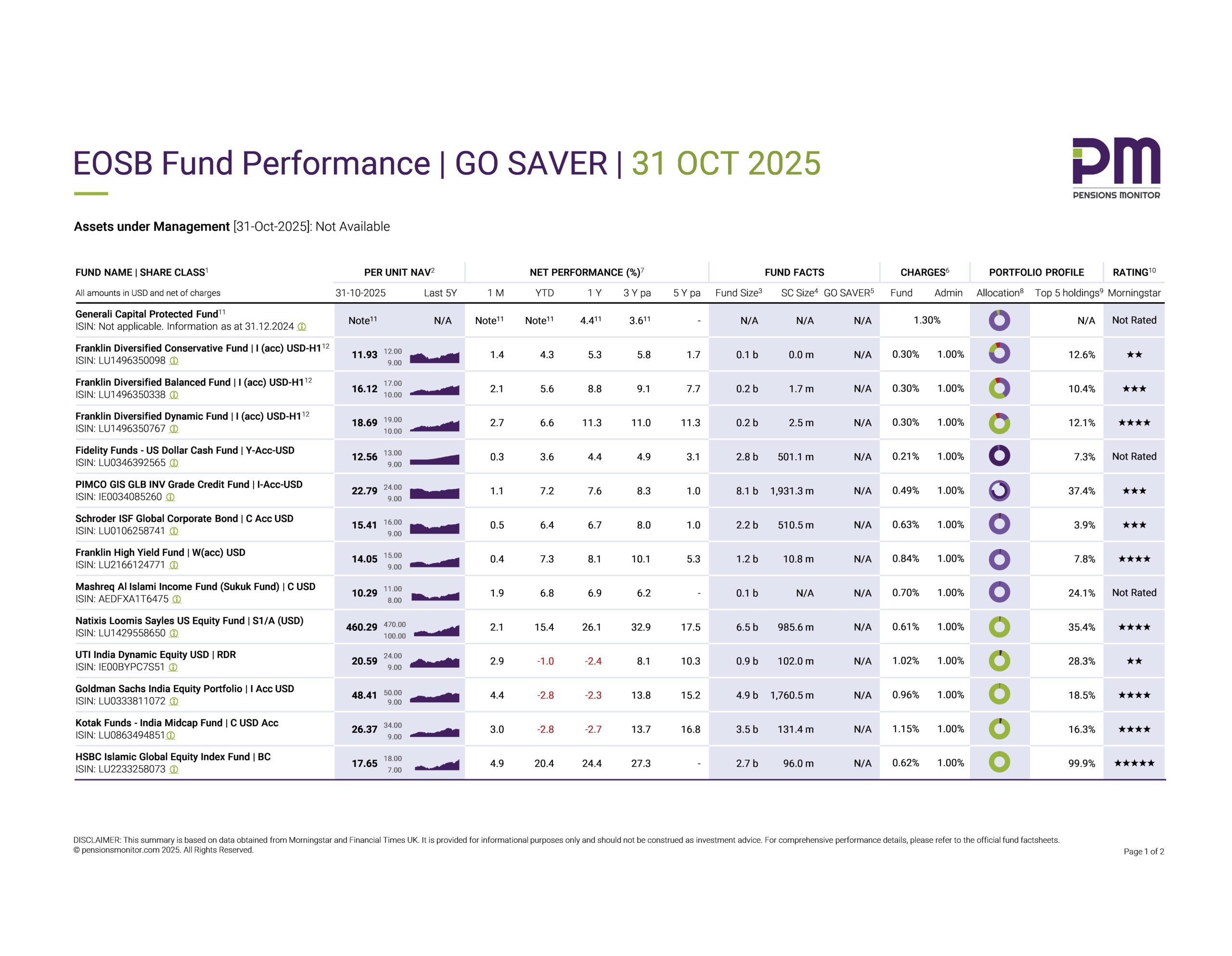
Many companies have been enquiring about the new alternative End-of-Service Benefits (EOSB) Savings scheme that was announced last year. Given that enrolment is entirely optional at present, companies are weighing the pros and cons of transitioning to the new scheme.
We discussed in a previous article some key considerations for HR managers when transitioning to the new scheme during this ‘voluntary’ period. To recap: Voluntary enrollment involves a 12-month commitment and non-payment of monthly contributions does attract certain penalties.
Today, we look at a potential incentive for companies to contribute to EOSB funds: Tax relief. This is a standard in most countries like US, UK, Canada, Australia, Germany, France and India amongst others, where employer contributions to pension schemes are generally deductible as a business expense, thereby reducing a company’s taxable profit and therefore its tax liability.
In the UAE, however, it is a developing subject. Firstly, because the Corporate Tax Law (UAE CT Law) itself is a recent introduction with 1 June 2023 being the beginning of the first tax period and the first CT filing not falling due until nine months after the end of the first tax period i.e., 31 March 2025. Similarly, the EOSB savings scheme vide Cabinet Resolution 96 of 2023 is just starting to take shape with compliant funds yet to be launched (as of early September 2024).
The main regulatory references on the subject are Federal Decree Law No. 47 of 2022 (UAE CT Law) and Ministerial Decision No. 115 of 2023 (Decision) on Private Pension Funds (PPF) and Private Social Security Funds (PSSF).
Article (5) of Decision confirms that contributions to PPFs are deductible for tax purposes. These are defined as funds created to manage pension contributions and provide payments to retired natural persons above a defined retirement age. Presumably, this relates to pension schemes for Emirati employees. However, the Decision is silent about tax benefits on contributions to PSSFs that are defined as funds created for statutory EOSB payments and therefore likely relate to expatriate employees.
-
So are EOSB contributions to funds deductible for tax purposes?
-
What is the definition of ‘remuneration’? Is it only basic salary or allowances as well?
-
And lastly, which funds qualify for tax purposes?
We at Pensions Monitor have sought to obtain clarity on the above from Tax Experts which is shared below. Please note that this article has been prepared for informational purposes only, and is not intended to provide, and should not be relied on for, tax, legal or accounting advice. Companies should consult their own tax, legal and accounting advisors on the subject.
Tax treatment on employer contributions to PPF/PSSFs
In context of a UAE-registered company that is under the normal regime where 9% CT applies, the general rules for allowing deductions from profits for CT are set out in Article 28 of the CT Law. In principle, expenses must be incurred wholly and exclusively for the purposes of the business and should not be ‘capital’ in nature.
Going by the above, EOSB is a normal business expense required by the UAE Labour Law, similar to employee remuneration, and therefore EOSB contribution to funds would normally be an allowable deduction for CT purposes.
While Ministerial Decision No. 115 of 2023 does not explicitly confirm the same, paragraph 5.4 of the Corporate Tax Guide | CTGEPF1 issued the Federal Tax Authority (FTA) in December 2023 states that “A contribution to a pension or social security fund by a Taxable Person who is an employer is tax deductible under general principles (i.e. Chapter Nine of the Corporate Tax Law on Deductions)”.
There are however some conditions that apply:
-
Contribution limit: The allowable deduction is capped at 15% of the ‘total remuneration’ of the employee in the relevant Tax Period for contributions made by an employer to both pension and social security funds (paragraph 5.4 of the Corporate Tax Guide | CTGEPF1).
The CT Law does not define ‘remuneration’ but we were given to understand by Tax Experts that in the absence of a definition, remuneration takes its usual meaning as payments to an employee under an employment contract. This will therefore likely include the basic salary and allowances.
That said, remuneration and deductible contribution must also comply with the arm’s length principle to be an allowable deduction as set out in Article 34 and 36 of the CT Law. Basically, this means that the contribution should be at a reasonable level for the employee concerned.
- Tax period: Further, the deduction is allowed only when the contribution is actually paid (cash basis) in the relevant tax period and not when the contribution accrues (accrual basis), tax period usually being the 12 months for which financial statements are prepared.
In practice, an employer’s tax computation is adjusted to:
- add back the deduction for contributions shown in the Income Statement; and
- apply a deduction for contributions to pension funds on a ‘paid’ basis.
So which funds qualify for tax purposes?
The CT Law does not specify clear criteria for qualifying funds, neither does it state whether the fund to which employer contributions are paid, should be domiciled in the UAE and subject to local regulations.
However, some guidance can be inferred indirectly. Paragraph 5.2.2. of the Corporate Tax Guide | CTGEPF1 outlines the conditions under which a fund may qualify as an Exempt Person—typically involving regulatory oversight by a competent authority in the UAE, legal or contractual governance, restrictions on the type of incomes and auditing standards.
Importantly though, 5.4 of the Corporate Tax Guide | CTGEPF1 states that there is no requirement for a fund to be an Exempt Person in order for a company to benefit from the allowable deduction under the general principles and that the maximum deduction is applicable whether the fund is an Exempt Person or not. This suggests that even contributions to non-exempt or offshore funds may still qualify, provided they meet the general deductibility conditions under the law.
UAE EOSB landscape
Now for EOSB purposes, the fund regulators in the UAE (apart from DIFC) are the Securities and Commodities Authority (SCA) and the Ministry of Human Resources and Emiratisation (MOHRE).
However, the foregoing guidance of CTGEPF1 implies that employer contributions to funds not regulated by SCA and MOHRE, and not domiciled in the UAE, may also qualify as an allowable deduction.
If so, do EOSB contributions to offshore funds or funds unregulated by SCA count as fulfilling an employer’s legal obligation under UAE Labour Law?
We know of at least one such voluntary plan in the UAE called Employee Secure Saver offered by HAYAH Insurance. The product was approved by the Central Bank of UAE in 2022 and reportedly manages assets of over AED 1bn, the majority of which is invested in overseas funds. It is however worth noting that HAYAH Insurance recently secured a fund management license from SCA in July 2024, while approval from MOHRE is still awaited.
In our view, it’s still early days, and while the current guidance appears broad, stricter rules on which funds qualify for tax deductibility are likely to emerge once actually put into practice.
In summary
Employer contributions to EOSB savings funds are deductible under general Corporate Tax principles — provided they are reasonable, within the 15% limit, and paid in the relevant period. While more regulatory clarity is needed on qualifying funds and offshore plans, companies can take comfort in existing FTA guidance.
Sign up to our newsletter to receive updates on this subject and on the EOSB market in general.
